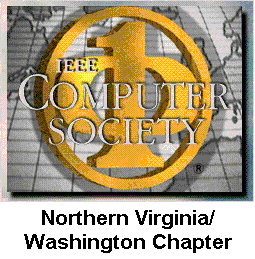
presented by
 |
presented by
|
Sponsors
|
You are all cordially invited to attend an IEEE Technical Meeting "Intellectual Property (IP)" on Thursday, October 13, 2005 at 7PM. The meeting will be held at the Mitre Corporation in McLean VA. Guest lecturer and speakers are: Mr. Russell Harrison, Mr. Stuart Huang, and Dr. Lee Hollaar. They will define Intellectual Property (IP) in relation to patents and copyrights and discuss the following:
The following is the biographical sketch of our guest speakers: Mr. Russell Harrison is the Legislative Representative for Grassroots activities for the IEEE USA. This year Mr. Harrison is traveling throughout the United States advocating these programs to the IEEE members. This information is vital in informing members of upcoming bills that directly impact industry and ultimately the US workforce. Mr. Harrison holds a B.A. in Political Science form Allegheny College and a Master degree in Public Policy form the University of MD. Mr. Harrison presentation will focus on what IEEE USA is doing in lobbying for patent reform laws. Mr. Stuart Huang is a partner and registered patent attorney with Steptoe & Johnson LLP. Mr. Huang practice emphasis is in intellectual property. His engineering expertise has earned him a winning reputation in litigating electronic communications, biomedical, mechanical, and chemical inventions. Mr. Huang's legal practice includes all phases of practice before the US Patent and Trademark Office, litigation in Federal Courts, Section 337 proceedings before the US International Trade Commission, counseling on intellectual property acquisition strategy, and intellectual property. Mr. Huang holds a B.S. in Bioengineering Science from Johns Hopkins University, M.S. Electrical Engineering from University of MD, and J.D. cum laude from the American Univ. Washington College of Law. Mr. Huang will address "What are some of the common mistakes that inventors make in processing patents and how to avoid." What is the purpose of a Non-Disclosure Agreement? What is a non-compete clause in an employment contract? Dr. Lee A Hollaar is a Professor in the School of Computing at the University of Utah. In 1996-97 Dr. Hollaar served as a Committee Fellow in the intellectual property unit of the Committee on the Judiciary of the US Senate, where he focused on patent reform legislation, and database protection that has become the Digital Millennium Copyright Act. Dr. Hollaar played a major role in adding two vocabulary words in intellectual property law: "Inducement and Forcibility" "Inducement "was recognized d by the Supreme Court in a unanimous Grokster opinion. This gave a new look at the contributory copyright infringement that has led to the introduction of the Induce Act in the 108th Congress: "Forseeability "as a limit on doctrine of equivalents in patent law is the heart of the Supreme Court's Festo. Dr. Hollaar chaired the IEEE-USA intellectual property committee during the amicus briefing. Dr. Hollaar academic achievements include a B.S. in Electrical Engineering from Illinois Institute of Technology and a Ph.D. in Computer Science from the University of Illinois. Professor Hollaar is currently working on a new approach to patent reform and laws governing shrink-wrap and click-on licenses. His topic will discuss "How IEEE members can approach and assist Cong ress and state legislatures to help them with technology-oriented legislation". Meeting Location and Directions: Mitre Corporation Building 2 Conference Room 1N100A/B (same level as the main guard desk) 7515 Colshire Drive, McLean, VA Directions: Off Route 123 in Tyson's Corner. Please RSVP to: Siering@ieee.org by COB (5PM) on OCT 11, 2005 For more information, please contact TK Ramesh or Debi Siering any of your chapter sponsor representatives. |